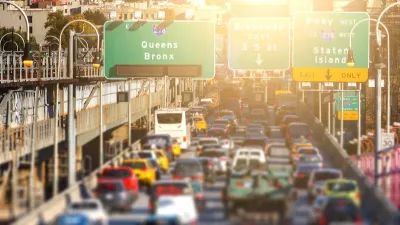Most California lawsuits challenging environmental impact reports have their sites set on infill projects.
Almost 60% of lawsuits filed under the California Environmental Quality Act challenge environmental review projects in infill locations as opposed to greenfield locations, according to a new analysis of 95 recent cases by two lawyers at Holland & Knight.
The new analysis comes on the heels of three other recent studies concluding that CEQA actions are struck down by courts between 40-60% of the time, compared to virtually zero for NEPA.
Mixed-use projects and infrastructure projects were challenged more frequently than any other type of project. Most of the EIRs were challenged on the basis of water supply, traffic, or air quality.
The study by veteran CEQA hands Jennifer Hernandez and Daniel Golub also concluded that about 70% of the plaintiffs in these cases were local organizations, most frequently environmental or homeowner groups. About two-thirds of the projects were private development projects, while a third were public projects.
FULL STORY: 60% of EIR Challenges Involve Infill Projects

Planetizen Federal Action Tracker
A weekly monitor of how Trump’s orders and actions are impacting planners and planning in America.

Congressman Proposes Bill to Rename DC Metro “Trump Train”
The Make Autorail Great Again Act would withhold federal funding to the system until the Washington Metropolitan Area Transit Authority (WMATA), rebrands as the Washington Metropolitan Authority for Greater Access (WMAGA).

The Simple Legislative Tool Transforming Vacant Downtowns
In California, Michigan and Georgia, an easy win is bringing dollars — and delight — back to city centers.

The States Losing Rural Delivery Rooms at an Alarming Pace
In some states, as few as 9% of rural hospitals still deliver babies. As a result, rising pre-term births, no adequate pre-term care and "harrowing" close calls are a growing reality.

The Small South Asian Republic Going all in on EVs
Thanks to one simple policy change less than five years ago, 65% of new cars in this Himalayan country are now electric.

DC Backpedals on Bike Lane Protection, Swaps Barriers for Paint
Citing aesthetic concerns, the city is removing the concrete barriers and flexposts that once separated Arizona Avenue cyclists from motor vehicles.
Urban Design for Planners 1: Software Tools
This six-course series explores essential urban design concepts using open source software and equips planners with the tools they need to participate fully in the urban design process.
Planning for Universal Design
Learn the tools for implementing Universal Design in planning regulations.
Smith Gee Studio
City of Charlotte
City of Camden Redevelopment Agency
City of Astoria
Transportation Research & Education Center (TREC) at Portland State University
US High Speed Rail Association
City of Camden Redevelopment Agency
Municipality of Princeton (NJ)





























